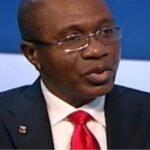There are indications that the Nigerian currency, the naira has been officially floated at the I&E window, after many years of resistance by the Central Bank of Nigeria.
- Also read;
- Student Loan Act: How to apply for the loan, all you need to know
- List of Dividends announced in 2023, qualification and payment dates
BusinessDay reported that sources familiar with the matter said that a market rate based on a wiling buyer and a willing selleris currently being quoted by banks who sent out emails to some customers confirming the change this morning.
The report went on to state that Investors & Exporters (I&E) window is now quoting a range of between N750 -N755/$, according to customers who cited emails received from their banks.
On its website, the Central Bank of Nigeria still has a rate of N463.38 per USD, a rate which was as at Friday, June 09, 2023.
The Nation online reported that a currency dealer confirmed that there were no restrictions at the market on Wednesday morning. The dealer stated that as of 12 noon on Wednesday, the Naira was already exchanging at N750 to the dollar.
The final rate will be determined at the close of trading by 4pm, and will be reflect on the I&E FX Closing rate on the FMDQ Group website.
Wale Edun, an influential member of Tinubu’s advisory board, told Bloomberg by phone on Monday that the unification of exchange rates was “imminent.”
“I would say it would have to be done within a quarter as rather than within a year,” he said. “ I think you’re talking, think quarters rather than years, that’s where I would put it.”
President Bola Tinubu at his inaugural speech vowed to unify the exchange rates to bring about stability and in the Forex market.
“The Central Bank must work towards a unified exchange rate. This will direct funds away from arbitrage into meaningful investment in the plant, equipment and jobs that power the real economy,” the President said.
BusinessDay quoting a knowledgeable source reported that the view was that the willing buyer/seller arrangement is the first of six steps to fixing Nigeria’s broken FX market.
The second it reported must be be to provide a hedge mechanism that is priced in line with the market while the third step is to ensure market yields are attractive to Foreign Portfolio Investors (FPI).
The step following that would be to ensure transparency and remove all controls around domiciliary accounts and finally, the a need to clear the dollar backlog in the market in order to attract FPIs.
The financial markets has responded favourably to Tinubu’s actions since inauguration, with The Nigerian Exchange’s All-Share Index hitting a 15 months high on Tuesday.
The Exchange closed Wednesday on a very high note, with the index advancing by more than 3%.
On June 1, Investogist citing Daily Trust reported that the CBN has devalued the Naira at the Importers and Exporters (I&E) window to N631 to the United States dollars from N461.60.
The Central Bank refuted the information, labelling it as fake news.
Nnamdi Maduakor is a Writer, Investor and Entrepreneur

























































